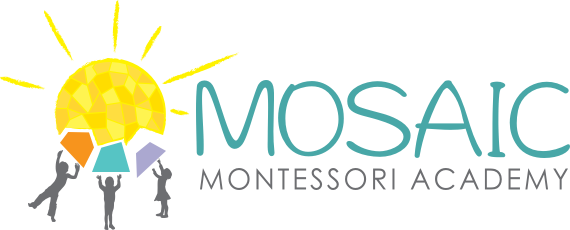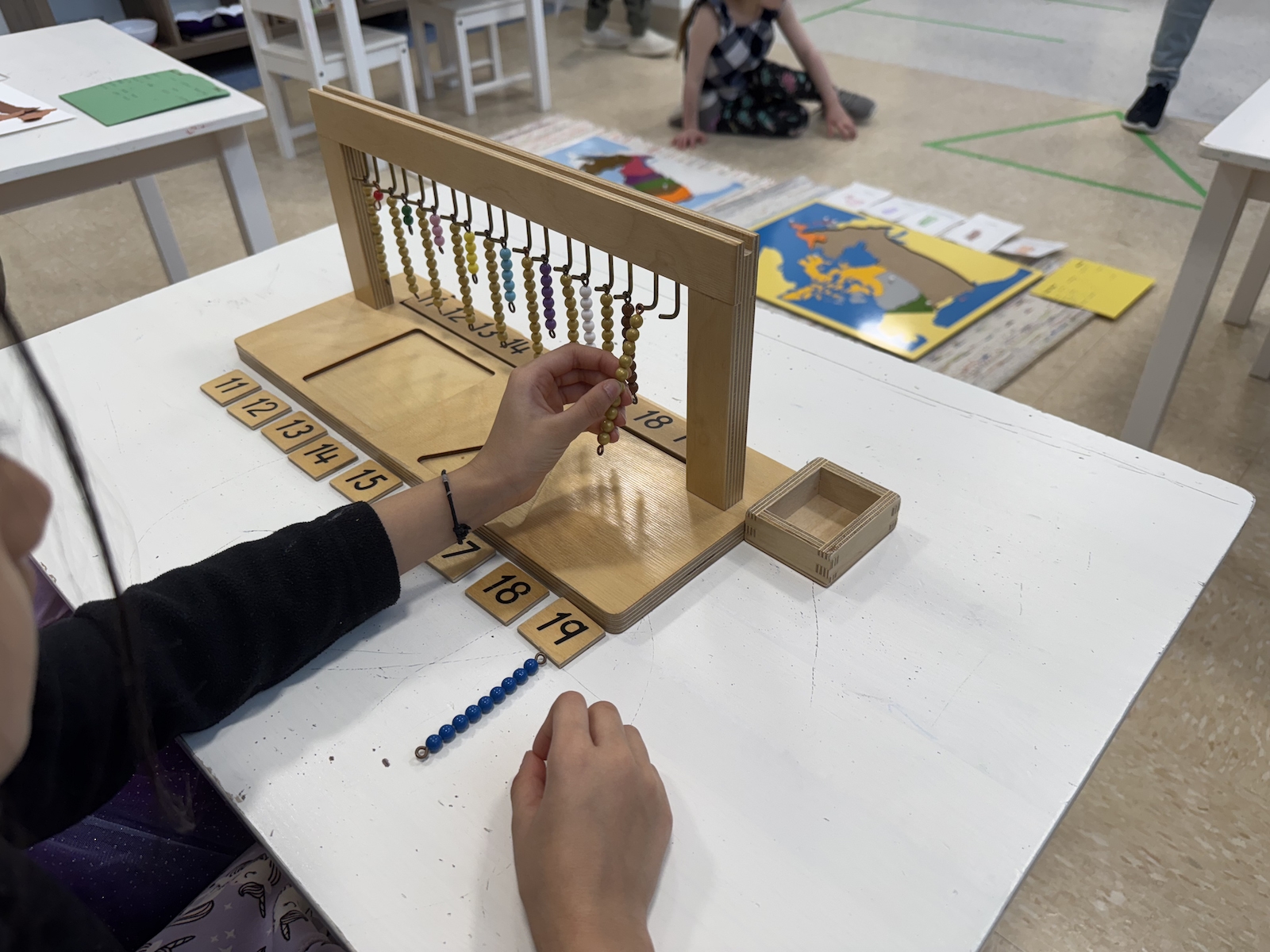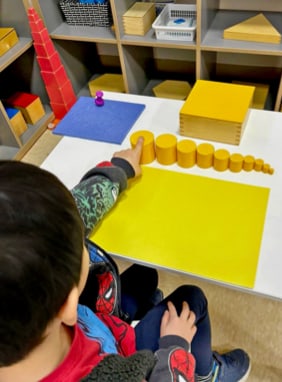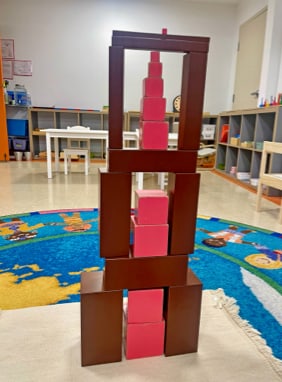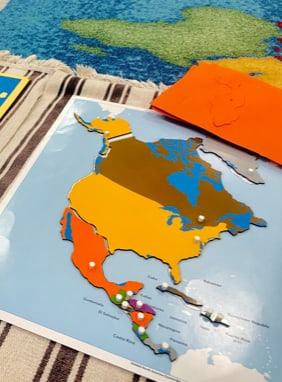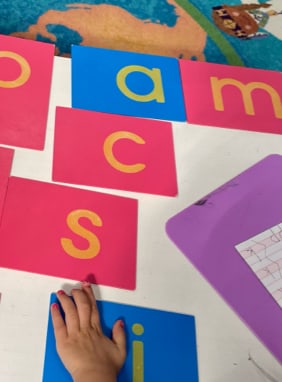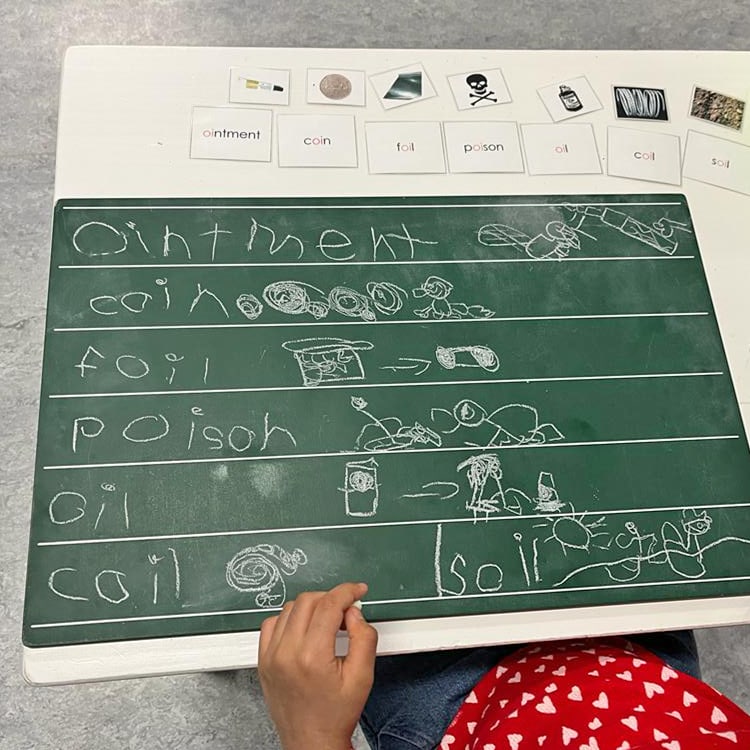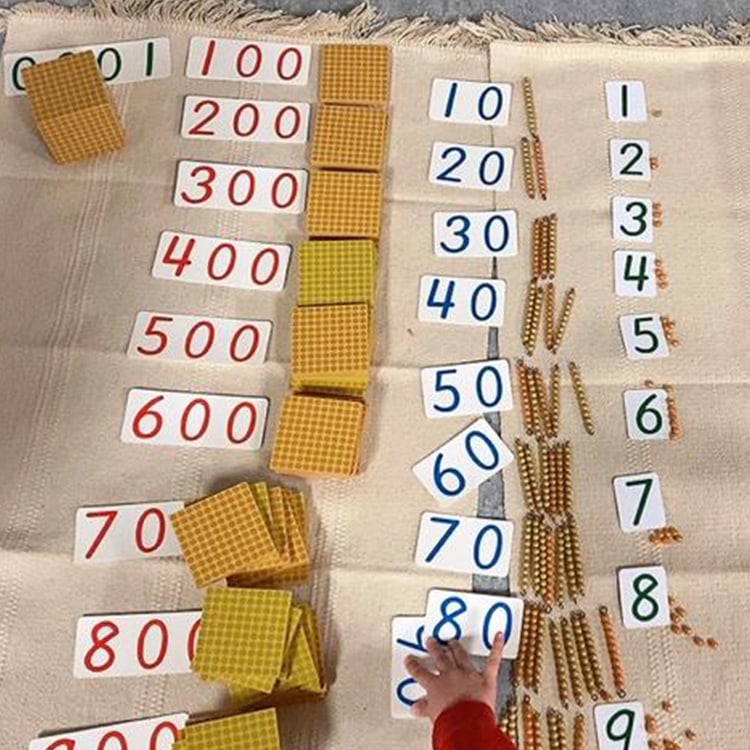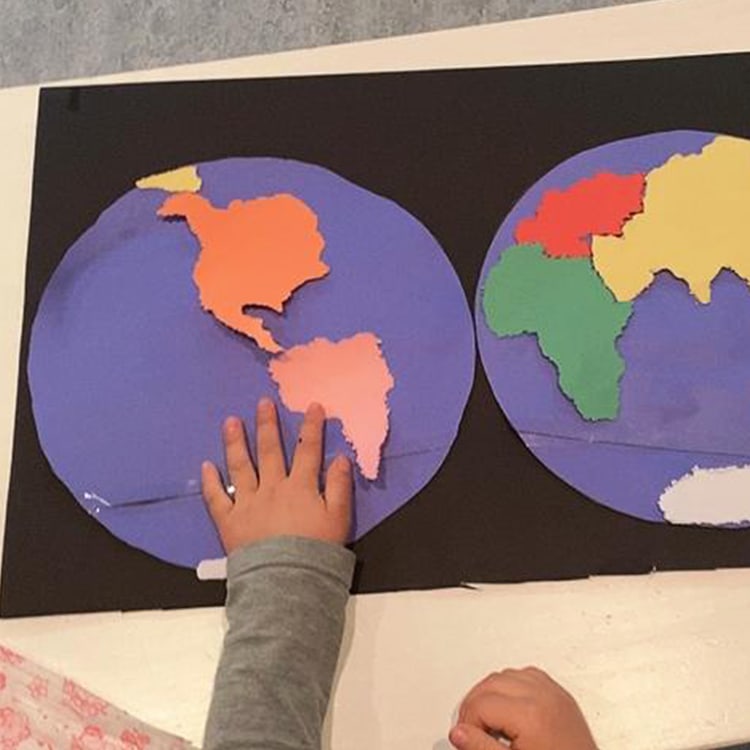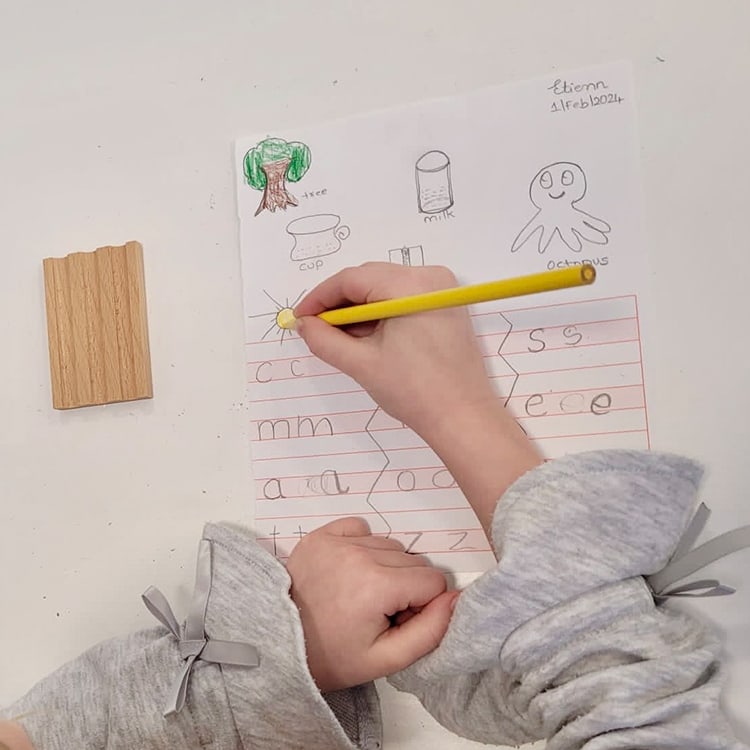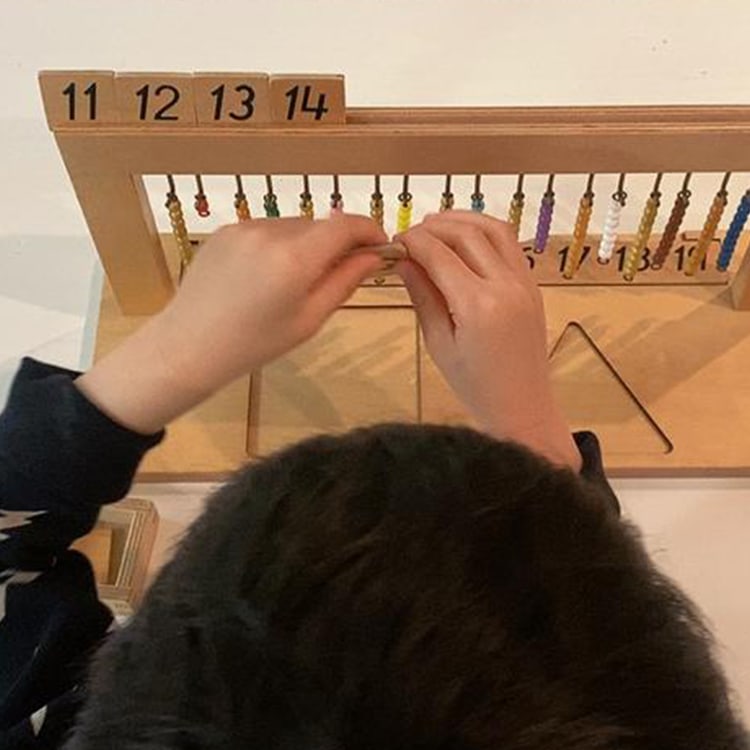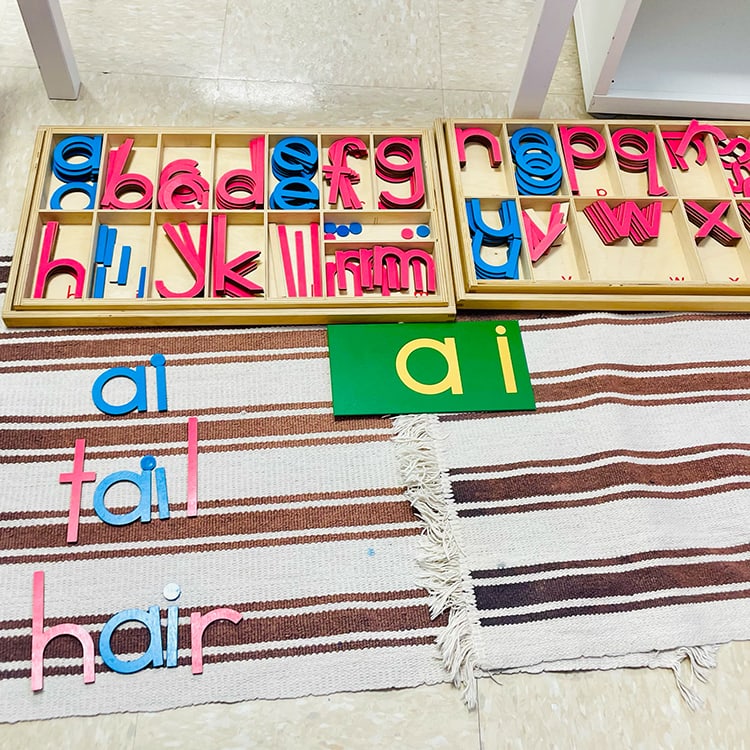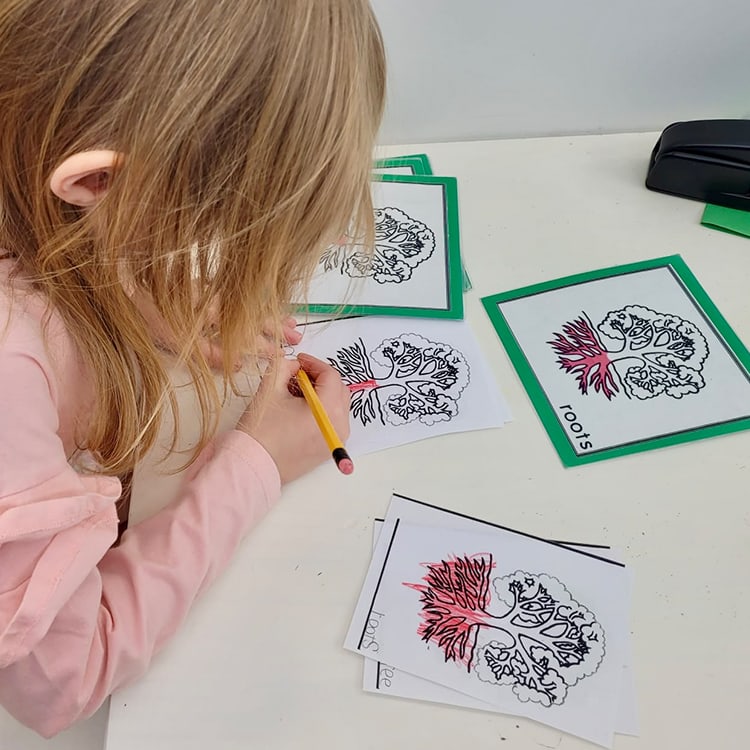In early childhood, children experience many periods of growth and discovery. During certain windows of development, they often show an intense interest in specific skills or aspects of their environment, called sensitive periods.
Understanding these sensitive periods allows parents and educators to provide the right materials, environment, and support at the right time. There are 11 sensitive periods that Dr. Montessori observed in children from birth to age six:
- Order
- Movement
- Small Objects
- Grace and Courtesy
- Refinement of the Senses
- Language
- Music
- Writing
- Reading
- Spatial Relationships
- Toilet Learning
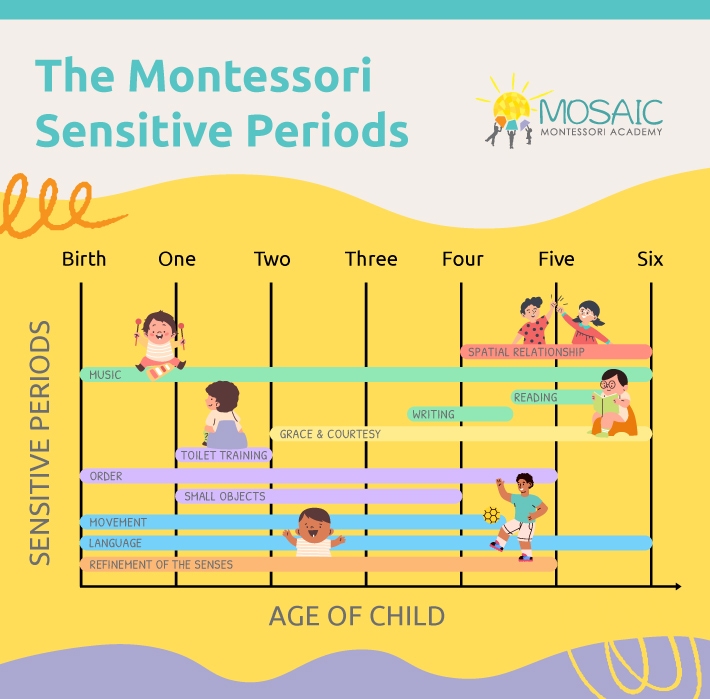
What Is the Montessori Method?
The Montessori Method is more than just an educational system; it is a philosophy of nurturing the whole child. Developed by Dr. Maria Montessori, an Italian physician and educator, the approach emphasizes independence, curiosity, and hands-on learning.
Through scientific observations of children, Dr. Montessori discovered that children thrive when their natural developmental stages are supported. Her methods are backed by modern research, showing benefits like improved academic performance, social-emotional skills, and executive functioning.
At its heart, Montessori education seeks to cultivate a love for learning while teaching children to think critically, work collaboratively, and follow their interests.
What Is a Sensitive Period?
Sensitive periods are phases in a child’s development when they are particularly attuned to learning a specific skill or concept. These periods are the child’s way of absorbing knowledge, like a sponge soaking up water.
During sensitive periods, parents and caregivers will notice that children exhibit intense focus, joy in repetition, and a deep desire to master an activity or skill. These fleeting but compelling moments create a strong foundation for future learning, especially when properly supported.
When Do Sensitive Periods Happen?
Sensitive periods occur primarily from birth to age six, with the most profound development occurring in the first 3 years. Children are naturally curious and driven by an instinct to learn and grow during this time.
While sensitive periods follow a general sequence, their timing can vary slightly from child to child. They are closely tied to the Montessori Planes of Development, which emphasize the importance of the first plane (ages 0–6) as a critical phase for building foundational skills.
What Are the 11 Sensitive Periods in Montessori?
1. Order (birth to age 5)
Children crave consistency, routine, and a predictable environment during this period. They are particularly sensitive to organization and may become distressed when things are out of place.
Provide a structured environment with consistent routines and organized materials. Montessori classrooms are designed to satisfy this need for order, giving children a sense of control and predictability.
2. Movement (birth to age 4.5)
Children have a strong drive to develop control over their bodies, from basic coordination to refined motor skills. Freedom of movement is essential for cognitive and physical development.
Create safe spaces for movement and encourage activities like climbing stairs, walking on balance beams, or building with blocks.
3. Small Objects (ages 1–4)
Children are fascinated by tiny details and objects, and they show intense concentration when manipulating small items. This period helps refine their fine motor skills and visual discrimination.
Offer activities like sorting small beads or practicing fine motor skills with tweezers.
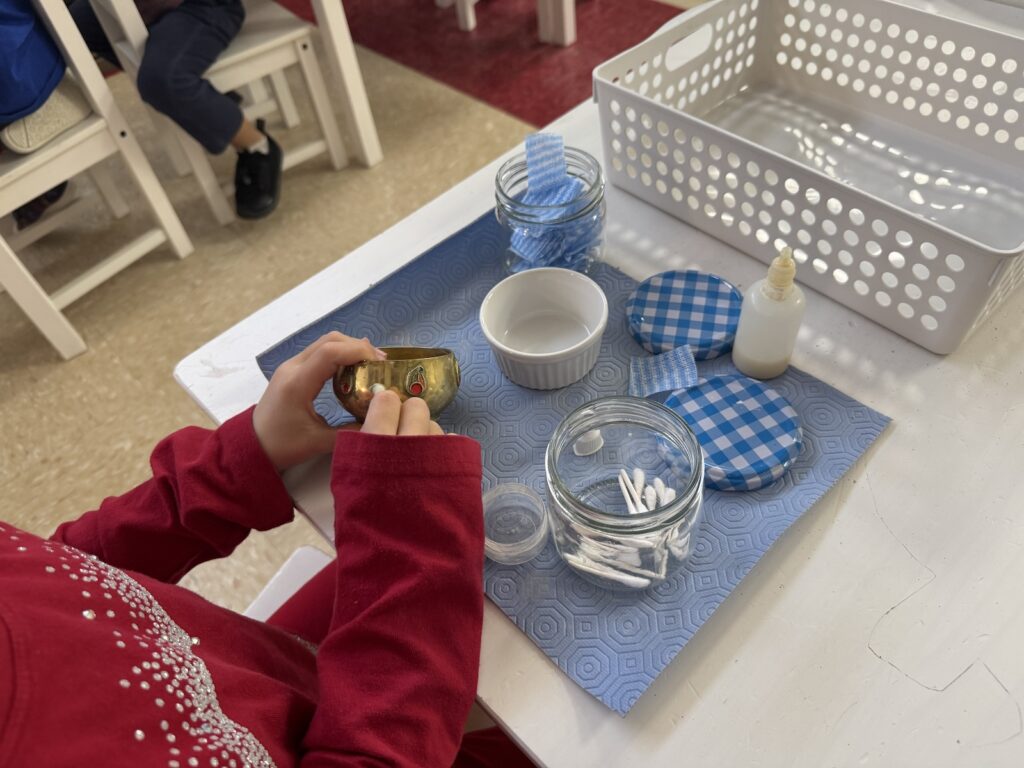
4. Grace & Courtesy (ages 2–6)
This period is marked by a desire to learn social behaviours, such as saying “please” and “thank you,” taking turns, and showing empathy. Children are naturally drawn to polite and respectful interactions.
Model polite behaviour and offer lessons in grace and courtesy. Encourage role-playing activities and group settings that foster social interactions.
5. Refinement of the Senses (birth to age 5)
Children are especially attuned to sensory input—textures, smells, sounds, colours, and tastes. They use their senses to explore and understand the world more deeply.
Use Montessori sensory materials like the Sound Cylinders and Touch Boards to refine auditory and tactile senses.
6. Language (birth to age 6)
Language acquisition happens rapidly, from cooing to forming complex sentences. Children absorb vocabulary, grammar, and pronunciation with remarkable ease.
Immerse your child in a language-rich environment with books, songs, and conversations. Montessori materials like the Sandpaper Letters engage children in tactile and visual learning.
7. Music (birth to age 6)
Children are naturally drawn to rhythm, melody, and pitch. Their sensitivity to sounds and music supports both auditory development and emotional expression.
Provide exposure to instruments and songs. Encourage exploration of rhythm and melody through playing or listening to music together.
8. Writing (ages 3.5–4.5)
Children become interested in expressing their thoughts through symbols and letters, often before they can read. They enjoy tracing shapes and forming letters with their hands.
Use Montessori materials like the Metal Insets to build pencil grip and hand strength, supporting the natural progression to writing.
9. Reading (ages 4.5–5.5)
Once writing skills emerge, children begin to decode written language and connect sounds with symbols. They gain joy and confidence as they start reading independently.
Introduce phonetic lessons and reading exercises. Montessori classrooms use Movable Alphabets and phonics-based games to nurture early literacy.
10. Spatial Relationships (ages 4–6)
During this stage, children develop an awareness of position, direction, and how objects relate to one another in space. This supports skills in math, geometry, and logical thinking.
Provide puzzles, geometric materials, and activities like map tracing to help children develop spatial awareness.
11. Toilet Learning (ages 1-2)
Children show interest in bodily functions and gain the ability to control elimination. With gentle guidance, they can transition to using the toilet independently.
Follow the child’s cues and provide a supportive, non-stressful environment for toilet learning. Montessori encourages independence through child-sized toilets and positive reinforcement.
Supporting Every Stage of Your Child’s Development
Sensitive periods are nature’s way of helping children develop critical skills with ease and joy. Understanding and supporting these phases can transform how you nurture your child’s learning potential. Discover how a Montessori education can empower your child to thrive.
Contact our team at Mosaic Montessori Academy today to schedule a tour or learn more about our programs. Together, we can create a strong foundation for your child’s future.
